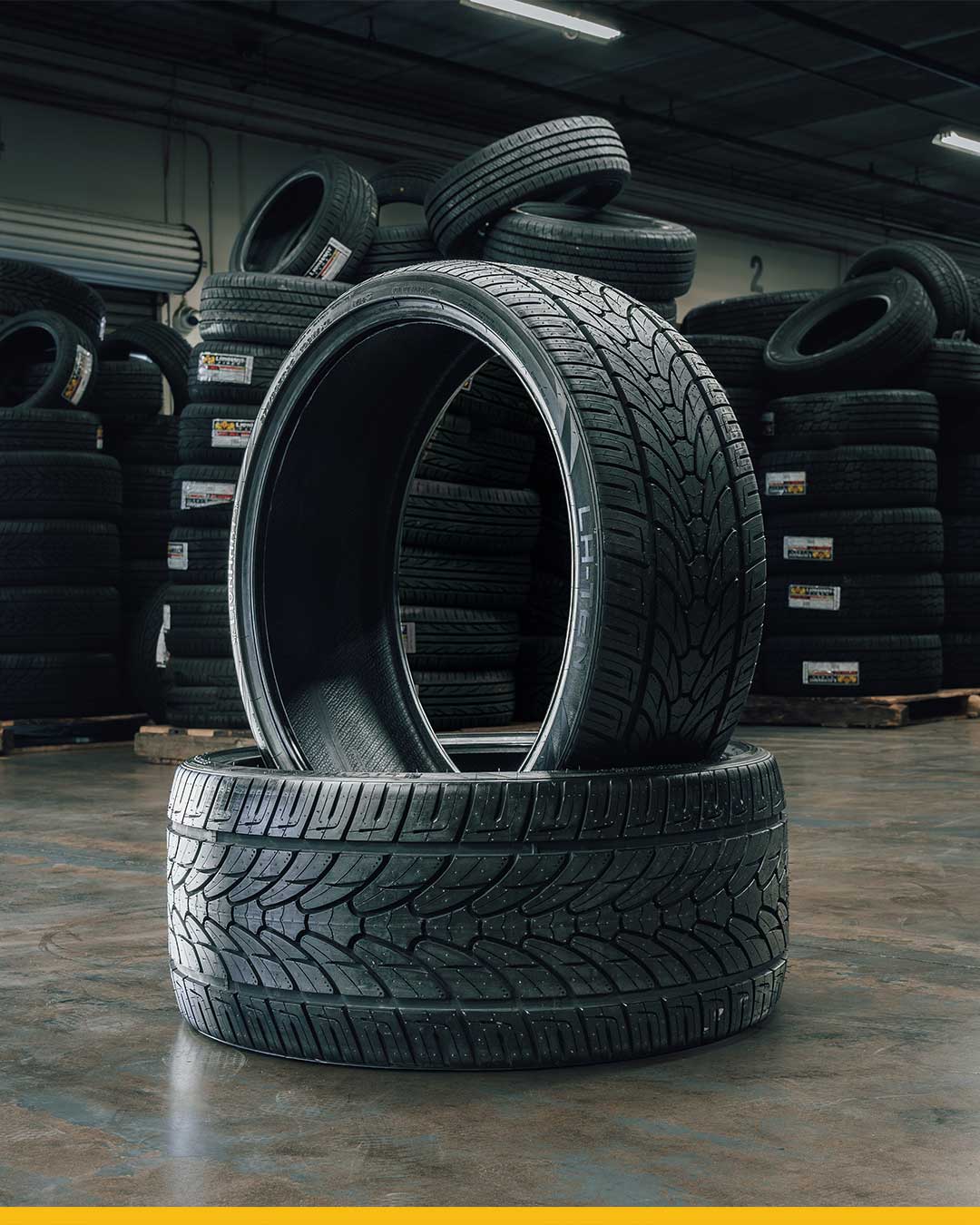The Impact of Tires on Vehicle Performance
Tires are a critical component of vehicle performance, influencing everything from fuel efficiency to safety. The right set of tires can drastically improve a vehicle’s handling, enhance braking performance, and ensure better traction and stability under various driving conditions. Lionhart Tires offers advanced tread designs and durable construction, offering balanced performance across these key areas. Whether you’re navigating wet roads or looking for reliable all-season capabilities, our range of tires provide options that meet diverse driving needs without compromising on quality or budget. This makes them a practical choice for drivers looking to optimize their vehicle’s performance in everyday driving scenarios.
Key Performance Factors
Tire Pressure
Maintaining proper tire pressure is crucial for optimal vehicle performance and safety. Properly inflated tires ensure the best contact with the road, enhancing fuel efficiency, handling, and braking performance. Underinflated tires increase rolling resistance, forcing the engine to work harder, which leads to decreased fuel economy and increased wear on the outer edges of the tire tread. Overinflation, while less common, can result in a harsher ride due to less tire surface touching the road, leading to accelerated wear in the center of the tread and reduced traction, which can affect braking and handling.
Tread Design
The tread design of a tire plays a pivotal role in its performance under various weather conditions. All-season tires are designed with tread patterns that provide safe performance in a variety of conditions, from dry to wet to light snow. The tread compounds are engineered to offer a balance between traction and longevity. Summer tires, on the other hand, use a softer rubber compound for better grip and handling on dry and wet roads, making them ideal for higher temperatures but less suitable for cold weather. The depth of the tire tread also affects performance; deeper treads provide better traction and shorter stopping distances, especially in adverse weather conditions.
Tire Composition
The composition of a tire influences its durability, performance, and suitability for different driving conditions. Softer compounds generally offer better grip and handling, which is ideal for high-performance tires used in sports and racing scenarios. However, these tires may wear out faster than those made from harder compounds, which offer longer life but may not provide the same level of performance. The choice between all-season, high-performance and light truck tires depends on the vehicle’s usage. Light truck tires are built to handle a variety of off-road and on-road conditions with a balance of traction and durability. High-performance tires are designed for optimal road grip and speed handling. On the other hand, all-season tires are suitable for all weather conditions. It’s important to note that all-season tires can also be high-performance tires.
By understanding these key factors—tire pressure, tread design, and tire composition—drivers can make informed decisions to enhance their vehicle’s performance and safety. Regular checks and maintenance can extend the life of tires and improve the overall driving experience.
Additional Considerations
Tire Size and Width
The size and width of your tires significantly influence your vehicle’s handling, stability, and fuel economy. Larger diameter wheels can enhance stability and handling due to a greater contact area with the road, but they may also reduce fuel efficiency due to increased rolling resistance. Conversely, narrower tires tend to improve fuel economy by reducing rolling resistance and wind resistance, though they might compromise handling in certain driving conditions.
Proper Alignment, Balance and Maintenance
Keeping your wheels properly aligned and balanced is crucial for achieving optimal vehicle performance and extending tire life. Proper alignment prevents uneven tire wear and ensures the vehicle drives straight without pulling to one side, enhancing safety and efficiency. Regular tire balancing minimizes vibrations and uneven wear, contributing to a smoother ride and more uniform tire wear. It’s recommended to check alignment and balance periodically, especially after encountering significant impacts like potholes.
For more detailed information on tire maintenance, visit our maintenance guide.
Choosing the Right Tires
Selecting the right tires for your vehicle involves considering your driving habits and the typical conditions you encounter. For those primarily driving on highways, tires designed for high-speed stability and fuel efficiency are ideal. City drivers might prioritize tires that offer better handling and durability to cope with frequent stops and starts. Off-road enthusiasts should look for tires with robust construction and enhanced traction.
Additionally, consider your vehicle’s performance focus. If fuel efficiency is a priority, opt for tires that offer low rolling resistance. For better handling, choose tires with a responsive tread design. Don’t forget seasonal considerations; in colder climates, winter tires are essential for improved safety and performance in snow and ice conditions.
For more information on selecting the right tires for your needs, visit our How to Choose Tires Guide.
Wrapping Up
Tires play a pivotal role in vehicle performance, affecting everything from fuel efficiency to safety. The right tires can enhance handling, stability, and overall driving experience. However, the benefits of high-quality tires can only be fully realized through regular maintenance and inspection. This includes keeping an eye on tire pressure, tread depth, and overall condition to prevent performance degradation and ensure safety.
For those looking to optimize their vehicle’s performance or unsure about the best tire options for their driving needs, consulting with a tire professional can provide tailored advice. Additionally, exploring further resources such as blogs and guides on tire care and selection can be incredibly beneficial. Remember, the right tires not only improve how your vehicle handles but also contribute to a safer, more efficient driving experience.




